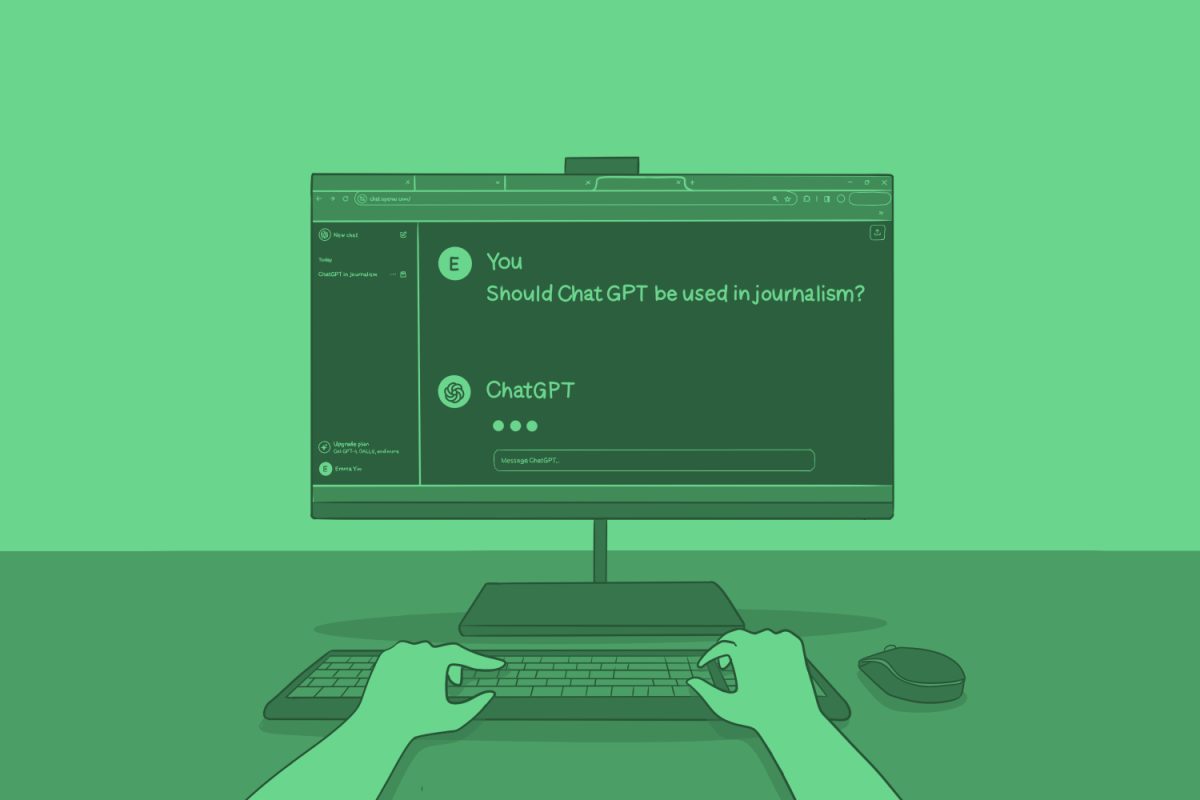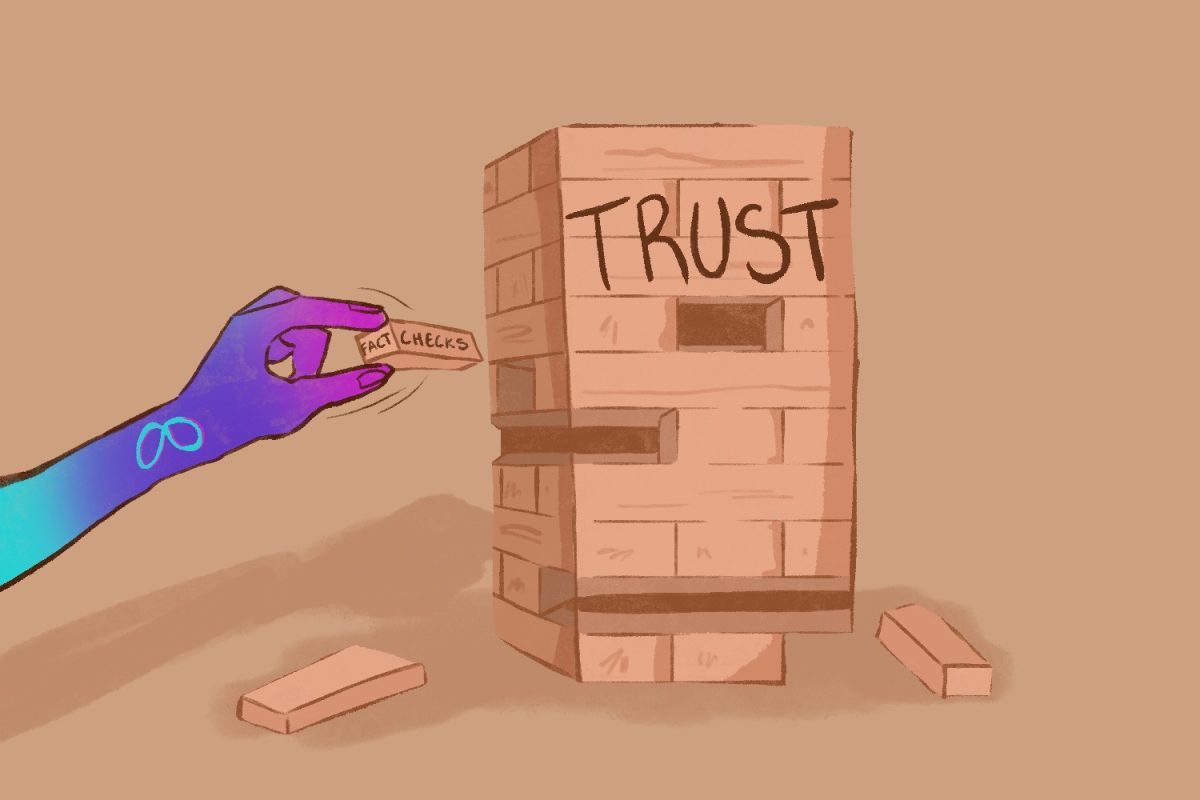Artificial intelligence must be carefully integrated into journalism to keep up with the modern world.
Dating back thousands of years, reporting the latest information is nothing new to humans. From giving reports of daily speeches in Ancient Rome to now using the internet to share information with millions of users, journalism has constantly evolved with technology.
Journalism now stands at the precipice of a new technological advancement that has the power to reshape our industry as we know it.
Artificial intelligence (AI) has recently seen a meteoric rise in usability, becoming more capable and human-like than ever. In addition, journalism adapted to the rise of the internet during the 1990s. Therefore, it stands to reason that journalism would eventually adapt to AI.
However, a great deal of uncertainty leaves many people doubting whether or not this should happen.
As the Scot Scoop Editorial Team, we have heavily discussed this topic and are currently taking the initiative to tackle the challenges of adapting to this new, AI-driven world.
The rise of chatbots like OpenAI’s ChatGPT raises ethical questions about using AI to produce our content.
Some could argue that platforms like ChatGPT help produce content. In theory, it would reduce time spent on drafting, making production more efficient and allowing for more news coverage overall.
The Society of Professional Journalists (SPJ) code of ethics states that journalists should be “acting independently.” For some, using AI to produce content, whether art, photography, or writing, cannot be considered independent because, fundamentally, AI is programmed to formulate a response based on the patterns it recognizes in the millions of works it is “trained” on.
Unlike an equation, AI can be “taught” to respond differently, allowing developers to limit certain results. Developers have already trained countermeasures to prevent chatbots from providing instructions for producing dangerous weapons.
Furthermore, using AI to produce our content changes the entire structure of a publication. Writers and artists could stand to lose their livelihoods as AI can be used to replace their work. Publications would only need to generate a simple prompt for AI to spit out a near-infinite number of interpretations for the desired content.
However, the SPJ’s code of ethics also emphasizes “seeking the truth and reporting it.” Should journalists not use every tool available to us to achieve this?
AI can be incredibly efficient as it can help refine a writer’s initial thoughts into a usable and editable draft. Afterward, a writer will refine AI’s words to match their typical writing style.
Beyond chatbots like ChatGPT, AI has already been integrated into popular programs such as Grammarly and Otter.ai.
Nevertheless, we also anticipate a wealth of possible ethical dilemmas that can occur from using AI and firmly believe that it should be used by staff only to assist and streamline production, not outright replace the work of a human journalist.
We must seek the truth and conduct our investigations, interviews, and research to develop our ideas independently from AI.
Instead, using AI to create quotes, replace interviews, or any other form of impersonation would be harmful as it could result in false information being reported.
In fact, it has been proven that AI has generated false information in a phenomenon called “AI hallucination.”
Furthermore, we must acknowledge when we use AI to assist us, we believe that must stay true to the SPJ’s code of ethics and “be accountable and transparent.”
This could include a small memo mentioning the use of a specific AI tool or even stating in publication policies that AI is involved in content production, which can go a long way to maintaining good journalistic integrity and following the code of ethics.
After all, anybody can publish anything, but a journalist’s reputation determines whether or not people will listen to the information.
Still, with how uncertain integrating AI will be, we predict that there will be countless unique cases where using AI dances the ethical line of our policies.
Therefore, it is even more critical that journalism adapts to AI so that we can handle these cases as an industry, combining our unique experiences to formulate a correct response and tackle each on a case-by-case basis.
Once again, referring back to the SPJ code of ethics, we must “minimize harm.” It is essential to minimize harm to readers by being accountable and factual. It is equally important to reduce damage to our fellow reporters and staff by giving each other the benefit of the doubt.
Ultimately, this new AI-driven world brings a wealth of uncertainties and questions regarding the future of our industry as we know it. However, as the Scot Scoop Editorial Team, we believe that as long as we stay true to our journalistic ethics in our integration of AI, we stand to break into a new level of news reporting.
*This editorial reflects the views of the Scot Scoop Editorial Board and was written by Erik Cheng.
The Editorial Staff staff voted 14 in agreement and 2 somewhat in agreement.














